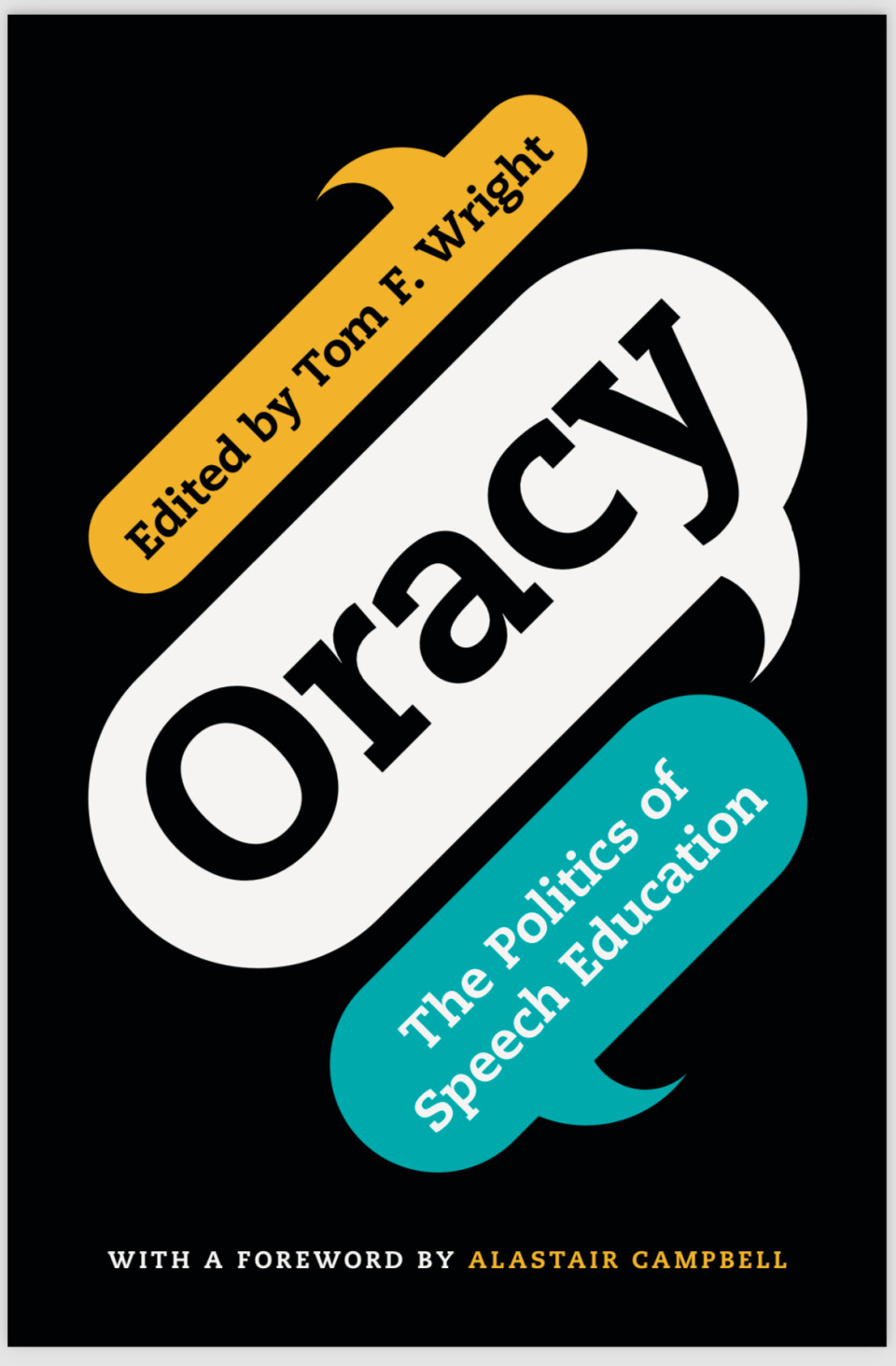Our Findings

Here are some of the published findings from our work to date
Oracy: The Politics of Speech Education
ed. Tom F. Wright (Sussex)
With a foreword by Alastair Campbell
A book forthcoming from Cambridge University Press in 2025. You can read a full draft here
The idea of oracy is often discussed uncritically or narrowly. This book debates the broader cultural and political implications of speaking and listening in education from a range of practical and theoretical perspectives. It brings together exciting fresh perspectives from teachers, school leaders and leading sociolinguists, historians, anthropologists and educationalists.
Notable contributors include Ian Cushing (Manchester Metropolitan University); Qamar Shafiq (De Ferres Academy Trust) Deborah Cameron (Oxford), Karin Barber (Birmingham), Debbie Newman (The Noisy Classroom), Neil Mercer (Cambridge), Stephen Coleman (Leeds), Tom. F. Wright (Sussex) and Arlene Holmes-Henderson (Durham)
'Oracy and English Studies',
ed. Arlene Holmes-Henderson (Durham) and Tom F. Wright (Sussex)
A special edition of English: The Journal of the English Association (Autumn 2023)
Read our introduction here
Read Alan Finlayson on the 'overlapping methodologies' of English and Rhetoric' here
Read Stephen Coleman's 'Manifesto for Communication Studies' here
The pieces in this special forum explore how a renewed focus on speaking can re-imagine what it means to ‘do English’. We are two university-level teachers, one from Classics, one from English, eager to explore the potential of this idea. We have brought together a series of short provocations from leading UK-based practitioners both within and beyond the subject area: including a speech-writer, university teachers of Shakespeare and contemporary poetry, charity leaders, and political communication specialists.
'I am very sensitive on the subject of accent': Children, young people and attitudes to speech in inter-war Britain.'
by Hester Barron (Sussex)
An article published in Modern British History, August 2024
Read the article here
This article considers elite and popular attitudes to speech and accent in interwar Britain, specifically in children and young people. It begins by showing that speech was a consistent preoccupation of educationalists, for whom classed prejudices, particularly the belief in a hierarchy between habits taught at school over those taught at home, complemented more progressive concerns about citizenship and employment. It continues by considering everyday school practices, charting the ways in which schools tried to influence their pupils’ speech. Efforts were often variable – and Mass-Observation accounts show that teachers’ attitudes were not always consistent either – but children might respond positively nonetheless. Finally, it considers influences external to school – cinema, wireless, family – to show that concerns with speech and language were not limited to an educational hierarchy, but were often shared by working-class parents and sometimes children themselves, thus challenging the assumption of a gulf between official attitudes and the (literal and metaphorical) vernacular. It argues that widespread attention to speech and language was one way in which social and educational aspirations were fostered – even if many were not realised – amidst the new technologies, consumerism and democracy of inter-war Britain.
Oracy and Ideology in Contemporary Gaelic: Conceptions of Fluency and its Perceived Decline Subsequent to Immersion Schooling
By Stuart Dunmore (Aberdeen)
An article in the Journal of Celtic Linguistics, Vol 23. January 2022
Read the article here
In this article I use sociolinguistic methods to focus on previously unpublished qualitative data on attitudes to oracy and fluency among Gaelic communities in Scotland. It is based on extensive interviews with Gaelic speakers and analyses their their perceptions of language attrition since attending immersion education in childhood. As the analysis of interview material shows, such demonstrable attrition of Gaelic oracy years after immersion provides clear challenges to current language planning priorities in Scotland.

Activities

Political Literacy APPG
We are working with the ‘Political Literacy All Party Parliamentary Group’ to discuss provisions for citizenship and political education in schools and further education colleges. In April 2021, we were awarded funding from the Sussex Knowledge Exchange to share our research findings with the APPG.
Find out more here.
Oracy APPG
Team member Dr Arlene Holmes-Henderson has recently been involved in a landmark report on the provision of oracy education in the UK, published by the 'Oracy All Party Parliamentary Group'. As an expert witness, Arlene has submitted evidence based on her research into oracy, rhetoric and critical skills.
Find out more here.
Research England Funding
In January 2021, Arlene was awarded funding from the University of Oxford Strategic Priorities Fund for Policy Engagement (Research England) to share her research findings with the 'Oracy All Party Parliamentary Group'. Arlene has recently been involved in the publication of the APPG’s ‘Speak for Change Inquiry’ report.
Find out more here.
Higher Education Impact Funding
In April 2021, Tom was awarded funding from the University of Sussex's Higher Education Impact Fund to collaborate with the organisation Shout Out UK to support research for the All Party Parliamentary Group on Political Literacy. This new collaboration will see Speaking Citizens help shape the direction of empirical survey data and lobby for educational change.

